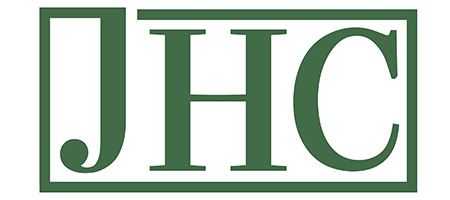Some people find creating and managing a budget to be overwhelming, because it can be hard to look at your financial situation with a critical eye. According to research, only 32% of Americans keep a formal budget. Only 30% of Americans have a long-term financial plan. Having a budget is an important part of being financially stable, because it can help you address long-term goals (such as paying off debt and saving for large purchases).

Why Make a Budget
If you have been doing fine without a budget, you may wonder why you should make one now. Two of the biggest reasons are stability and stress relief. Most people consider talking about money to be stressful, but when you know exactly how much you have to spend and where, you’re in more control of your finances.
Here are some of the reasons why creating a budget with a CPA can be helpful:
- It can make sure your household or business is financially stable.
- It can prepare you for retirement or building a profitable business.
- It can help you get out of debt.
- It will allow you to have a rainy day or emergency fund.
- You can start saving money for your financial goals.
You should put together a budget as soon as possible because even if you have never budgeted before, doing it now can be a huge step forward in reclaiming your financial future.
What Should be Included in a Monthly Budget
Because we live in a time of rising costs that seem to get higher each day, budgeting your finances and saving for the future has never been more important. It’s easy to get caught in the currents of rising prices and growing debt while trying to balance between present expenses and future security. The first step in creating a more stable financial future is to understand your spending and what’s important (as opposed to what’s extra).
To help you come up with a budget, expenses can be broken up into the following categories:
- Needs — You should start by creating a budget for your essential expenses (such as housing and groceries). They’re non-negotiable items that you can’t live without, and they will form the foundation of your entire budget. You should allocate a percentage of your income to cover these necessities, because it will ensure your financial stability and security.
- Wants — It’s important to take care of your needs. But even if you’re on a tight budget, you should consider at least some of your wants. You may not be able to spend as much as you would like, but you don’t want to get rid of it completely. No budget will be exact every month, and this is where you’ll have some wiggle room. Prioritize the things that make you the happiest, because it will allow you to enjoy your life while keeping you financially responsible.
- Debt Repayment — Going into debt is the worst thing you can do when you’re on a budget. If you have a lot of debt, you will keep falling further behind because interest payments will increase. You can start by making the minimum payments and making a commitment not to add to your total debt. You also want to allocate any extra funds toward the balance so you can get out of debt faster.
- Retirement and Emergency Expenses — Everyone needs to put money into some type of emergency fund, because it can help them prepare for monthly expenses. So, you should create one as soon as possible. Most financial professionals recommend having at least 3-6 months of expenses saved up for basic needs. That way, you won’t have to allocate important parts of your budget when your car needs to be repaired or have unexpected medical expenses.
A common budget framework that’s easy to understand and follow is the 50/30/20 rule, which recommends taking your monthly after-tax pay and splitting it up in the following manner:
- Allocate 50% towards your needs.
- Allocate 30% or lower to be spent on wants.
- Allocate 20% for savings and paying off debt.
If you follow this plan, you’ll be able to manage your monthly needs and still have fun (all while creating a savings pool that you can use to cover costs and prepare for retirement). If your needs make up more than 50% of your take-home pay, you may want to reduce how much you spend on your wants and reevaluate your long-term situation.
Budgeting Preparation FAQ
The term “budgeting” refers to the tactical implementation of a business plan. But if you want to achieve the goals listed in your business’s strategic plan, you will need to have a descriptive road map that sets measures and indicators of your business’s performance. That way, you can make the necessary changes to keep your company on track.
It’s a comprehensive process that requires input from stakeholders, especially if you’re trying to bridge the gap between financial objectives and strategic goals. The most effective annual budgets are both operational and financial. It will also be designed to make the process transparent and accessible to everyone involved.
If departments and teams have clear financial boundaries, a budget will not only make them more fiscally responsible but will also encourage them to use resources more efficiently. Having this culture of accountability that’s driven by regular budget monitoring and evaluations will make sure that the company won’t waste resources, which will maximize returns and minimize expenses. This is what drives business growth.
Budget preparation can help a business in the following ways:
It can help in the planning of actual operations — Having a budget will encourage managers to think about how conditions may change and what steps they need to take (all while helping them understand how to take care of problems when they come up).
It coordinates the organization’s activities — Budgeting will encourage managers to build relationships with other parts of the operation. It will also help them to understand how all the departments and teams interact with each other, as well as how they support the organization.
It can be helpful in communicating plans to managers — It encourages the communication of individual goals, plans, and initiatives (which can be helpful in supporting the growth of the business). It also makes sure that appropriate individuals are held accountable for implementing the budget.
It motivates managers to work toward achieving budget goals — Having a budget will encourage managers to participate in the process. It will give them a set of challenges or targets by linking it to their compensation and performance.
It can help managers to control their activities — Managers can compare their actual spending with the budget, so they can control their financial activities.
It can serve as a basis for evaluating managers’ performance — Budget preparation will give you a way of informing managers on how well they’re performing with regard to the targets you have set.
Be sure to speak to a professional for more information about how having a budget can help you.
Here is a list of the different types of budgets:
Operating Budget — Revenues and their associated expenses during daily operations are budgeted in detail and are divided into major categories (such as revenues, salaries, benefits, and non-salary expenses).
Capital Budget — This is usually a request for the purchase of large assets (such as property, equipment, and IT systems) that put a great deal of demand on an organization’s cash flow. The purpose of a capital budget is to allocate funds, control risks in decision-making, and set priorities.
Cash Budget — This is what ties the other two budget types together. It accounts for the timing of payments and the receipt of cash from revenues. A cash budget can help management keep track of and control the company’s cash flow by determining if more capital is necessary, whether the company needs to raise more money, or if there’s too much capital.
Be sure to speak to a financial professional for more information.
For most companies, the budgeting process starts 4-6 months before the start of the new fiscal year, but some budgets take an entire year to complete. Most organizations even set budgets and do a variance analysis on a monthly basis. During the initial planning stage, the company will go through a series of steps before a budget is implemented. Some of these processes include the following:
Communicating with executive management.
Establishing objectives and targets.
Developing a detailed budget.
Compiling and revising the budget model.
Doing a budget committee review before final approval.
If you’re looking for a CPA in Corpus Christi who can help you with your budget planning, be sure to get in touch with Jennings & Hawley.
